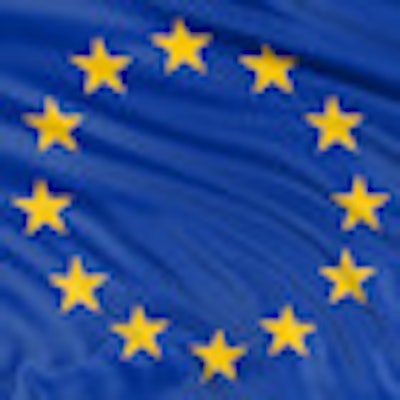
After several years of uncertainty and deliberation over the regulations affecting MRI, a European Parliament (EP) committee voted on Thursday to exempt workers who deal with MRI from exposure limits contained in the Directive on Protecting Workers from Exposure to Electromagnetic Fields.
But the issue has not been fully resolved, and concerns remain about how next year's all-important full EP vote is likely to go.
The Committee on Employment and Social Affairs (EMPL) overwhelmingly approved a draft that now will be used as the basis of informal negotiations with the European Council, an institution of the European Union that comprises the heads of state or government of the EU member states, along with the president of the European Commission and the president of the European Council. If agreement is reached, as expected, it will be voted on by the EP in 2013.
 Today's vote is an important step that reverses an earlier detrimental decision, according to Dr. Gabriel Krestin. Image courtesy of the European Society of Radiology.
Today's vote is an important step that reverses an earlier detrimental decision, according to Dr. Gabriel Krestin. Image courtesy of the European Society of Radiology.
"Today's vote is an important step that reverses an earlier detrimental decision. Without this change patients could not have benefited from MRI in the diagnosis and treatment of life-threatening diseases," said Dr. Gabriel Krestin, president of the European Society for Radiology (ESR) and co-founder of the Alliance for MRI.
In the run up to today's vote, there was potential opposition from the Socialist Group, which sought to insert an article introducing a general principle that workers should not be exposed to electromagnetic fields (EMFs) above the exposure limits. This amendment was rejected by the rapporteur, given the extended discussions on the text to date. In the ensuing vote, 39 members of the EMPL Committee voted in favor of the derogation for MRI, and only two people abstained.
However, the shadow rapporteur, Sylvana Rapti, has said that the Socialist Group will abstain in the plenary vote should this proposed amendment not be accepted, thus posing a new threat to the EP vote.
The use of MRI is regulated through the Medical Devices Directive. The parliamentary committee's action corrects ongoing problems with the original directive and endorses an updated proposal by the European Commission on Protecting Workers, according to a press release issued on Thursday by the Alliance for MRI. By subjecting MRI to overly restrictive limits, the original version would have curtailed MRI-guided brain surgery and made MRI difficult to use in situations where close patient contact is required, including imaging of vulnerable patients and children, the Alliance noted. The exemption is also necessary for research and development and for routine cleaning and maintenance of MRI equipment, it believes.
"The derogation for MRI that was endorsed today will ensure that serious medical conditions such as cancer will be diagnosed and treated to the benefit of patients in Europe," said patient group representative Mary Baker, who is president of the European Brain Council. "I am calling on all members of the European Parliament to follow the example of their colleagues and to support the MRI derogation in the plenary vote in early 2013."
The EMPL Committee, which is mainly responsible for employment policies and all aspects of social policy, working conditions, vocational training, and the free movement of workers and pensioners, voted on the draft report on minimum health and safety requirements regarding the exposure of workers to the risks arising from physical agents, notably EMF fields.
The committee consists of 50 full and 50 substitute members, representing the various political groups in the EP. Each group appoints a coordinator to take part in organizing the committee's work. The EMPL Committee works with the Council of the Union and the European Commission to implement the legislative framework in the areas for which it is responsible.
The amendments voted on today by the EMPL Committee were proposed by French politician Elisabeth Morin-Chartier. She suggested that exposure may exceed the exposure limit values, if the exposure is related to the installation, testing, use, development, maintenance of, or research related to MRI equipment for patients in the health sector.
The Alliance for MRI has welcomed today's vote, which demonstrates that most committee members have recognized the importance of MRI for patients in Europe and are willing to take the necessary legislative steps to ensure that this technology remains available to patients, according to the release.
The Alliance is a coalition of European parliamentarians, patient groups, European scientists, and the medical community. It was officially launched in March 2007 in response to pending implementation of the EU Physical Agents 2004/40/EC (on EMF fields) in April 2008. The Alliance was founded by the ESR, the European Federation of Neurological Associations, and Dr. Hannes Swoboda MEP, chair of the Socialist Group in the EP.



















